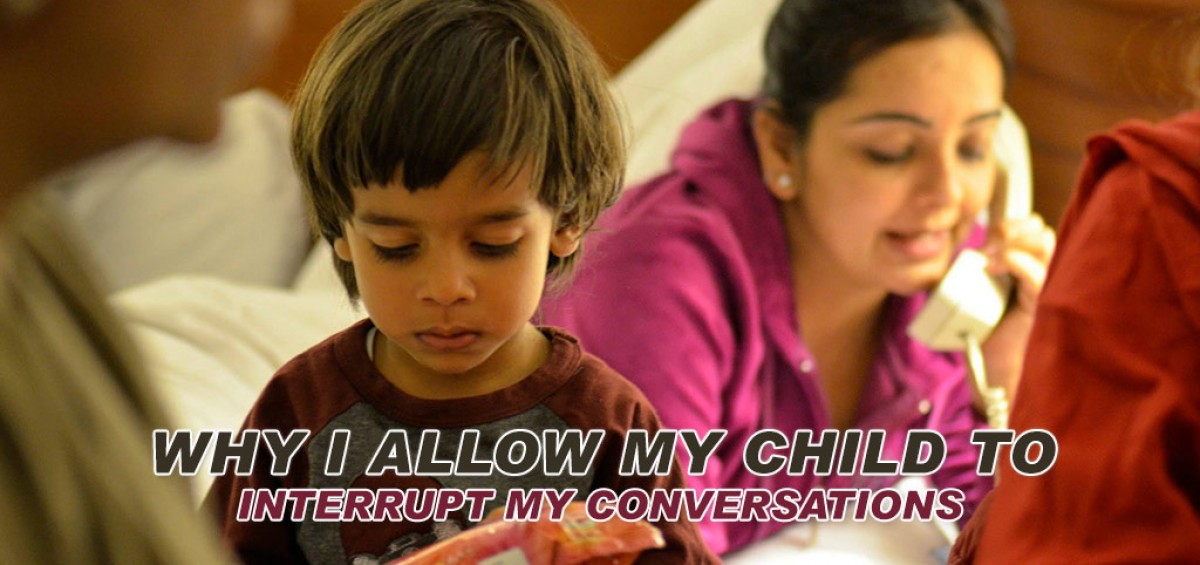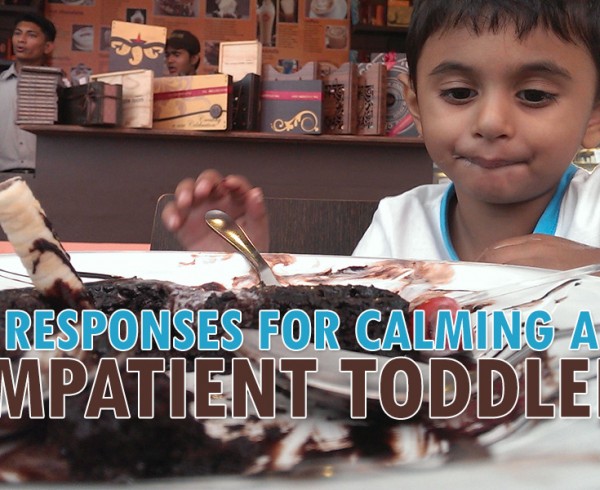Why I Allow My Child To Interrupt My Conversations
R came running to me. I was at the door talking to my neighbour. He tugged at my hand and chirped “Mamma, come quickly! You have to hear what Inaaya (our 14 months baby) is saying!”
*Metal evaluation initiates* Should I allow him to interrupt my conversation and leave or ask him to wait?
*Result*I excused myself for a moment.
With me flying behind him, R glided to I. On landing beside her, he chided her to repeat herself. She had said “bhaiya (brother)” for the first time. That was my ‘cutie pies’ moment and I am glad I did not miss out on it in order to teach my child a lesson in discipline.
Does this mean I endorse that children should go around screaming till they are heard. NO. That’s not what I am saying. All I am saying is that I want to appropriately encourage his enthusiasm to share things with me. I don’t want to raise a child who will bottle up his words because his interruption may be inconvenient to me. Given his age, I don’t want to dismiss him from being heard. I want to encourage him to share, to understand that as a child he can reach out to me and that I value his thoughts
I acknowledge his interceptions can be a little disturbing. But I belong to that spectrum of moms who believe that something that seem little to them could mean a whole lot to the kids. Waiting to be heard can be detrimental to our relationship and may mean that he will reach out to me less often. Some would opine that this is the fostering of a selfish being or getting accustomed to too much attention? I doubt that! I don’t remember my mom having given me a crash course on discipline and employing gestures suggesting that I want to say something!! I don’t remember having undergone a special lesson in learning patience. Am I an interrupting adult? I don’t think so. Over the years, progressively, patience and discipline are not only taught by parents to their children, but the developmental stages of children allow them to observe adult behaviour and follow suite.
So How Do I Teach My Child To Interrupt My Conversations
Provide Him My Attention: While I don’t allow R to have an entire conversation with me if I am already engaged in important matters, I will usually allow him to finish a sentence. 5 seconds of my time gratifies him and are usually enough for me to gather a gist of what he’s trying to say. I for one have never been in a conversation of such paramount importance that it cannot be interrupted for a few seconds by my children. If I am talking to my second born and R wants to be heard just then, I use this as an appropriate time to teach him to wait for his turn. I do understand that as a parent I must teach respect, restraint and patience to my children. But I think instilling these are a developmental process and with age, one is able to grasp these better.
Prepare Him For Not Interrupting: I have begun talking to him about when it is NOT OK for him to interrupt me unless it is an emergency. If we are having guests over or I am going to be making a call, I try setting some basic rules down for him. I also plan on an activity that he can be occupied with independently.
Using the courtesy words: One of the ongoing lessons in R’s school is the use of courtesy words in school. We are employing these consistently at home as well. We are encouraging him to use ‘Excuse me’ if he wants my attention while I am engaged in a conversation. However, I make exceptions on occasions when he has an overwhelming body language and wants to say something immediately.
Lead By Example: R doesn’t like being interrupted when he is narrating a story or enjoying some sibling time. I use this as an example for when I need to make a call or talk to someone. I wait for him to finish playing, use the courtesy word and enter into his conversations gently. Often, I patiently wait for my turn if he is talking to his sister. Showing, for children, is the best form of learning.
Practice Within The Family:As a family, we are beginning to implement certain ‘must dos’ while interrupting or entering into a conversation. We wait for a pause, we ask for the other person to wait till we finish and we use ‘excuse me’ often! We seize opportunities to educate R that controlling your needs and desires is important and one has to be sensitive to the feelings of others. But we don’t react to interruptions rudely. This means we are giving R the attention he wants. This is a step backwards. Instead we appreciate the use of ‘excuse me’ and those times when R has waited patiently to be heard.








Leave a Comment